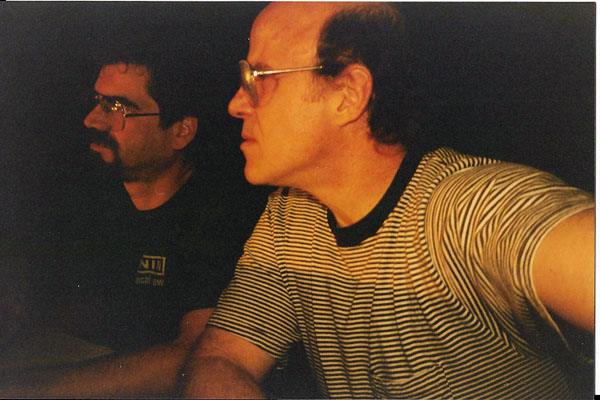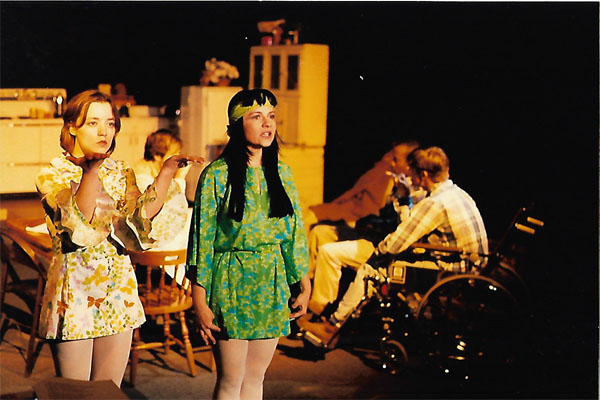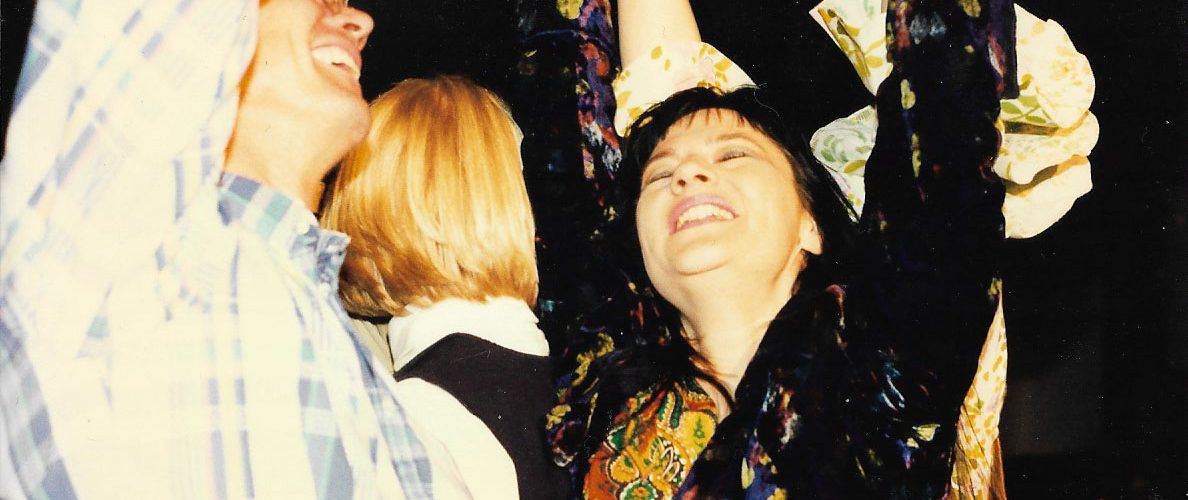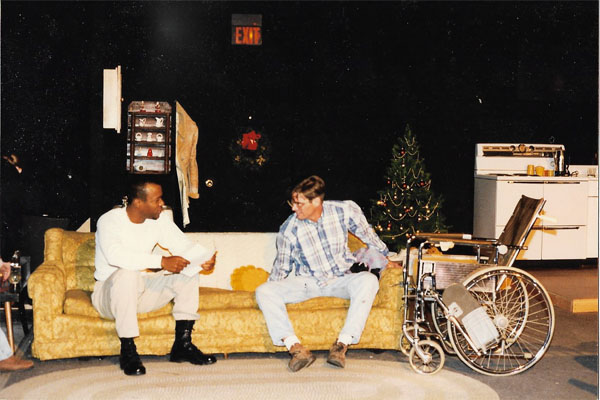An Interview with:
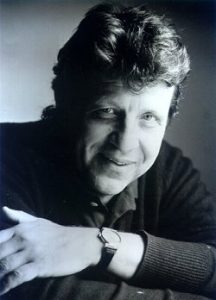 Barry Primus
Barry Primus
By Harry Governick
Artistic Director, TheatrGROUP
September 3, 2001
The Interview – Page 2
B: But truly experiential, you know? He could see that they were gripped by something that involved them, whether it was partly personal or partly imaginative, it really doesn’t matter. As long as it’s something that stirs the actor, truly stirs the actor, you know? Where their heart is beating faster, where they’re sweating, where they’re crying, where they’re laughing, where they’re blushing. Those are the things you want to get to. You know?
H: Right.
B: That was a long winded answer.
H: That’s a great answer. When did you first know you wanted to be an actor?
B: I think I always wanted to be an actor, because everybody in my family was very interested in acting, and I was very fortunate to come from New York, where there was a lot of theatre and a lot of movies around. Both my grandmothers were pretty theatrical people, and my mother was also a storyteller. There was a lot of interest in the theatre. At that time, theatre in New York was very strong, and middle class families like my own were regular theatre goers.
H: So you had support from your family… emotional support I’m talking about?
B: Certainly I think so, in that way. And in the negative sense I didn’t have much else I knew how to do. I was interested in entertaining. I wouldn’t say just acting, until a little later. But entertaining. Being a singer, and a dancer, and I won talent shows. And then, when I started seeing people like Montgomery Clift and Marlon Brando, I started to, uh… and John Garfield was my first hero. When I first saw those people, I was very taken back by the fact that they were speaking in ways that were very familiar to me. They were not removed in a Hollywoodish way, but in a very real way. You know?
H: I had similar experiences. When I watched Marlon Brando in Julius Ceasar, that was the first time I understood that speech [‘Friends, Romans and countrymen…’].
B: Sure. So, yeah. I was very taken back by the neo-realist movies that came out of Italy after the war. By Fellini and Rosellini. There’s a certain reality. A street reality. And then Kazan came along too. And he had that certain kind of reality too. And the way he used actors.
H: Were you involved directly with him at Lincoln Center?
B: Yeah. Right. I first met Kazan when he was doing a movie called America, America and he interviewed me for it. And then about a year later, I auditioned for Lincoln Center, and I got into that company. I was one of about twenty younger actors that he took into that company, and I trained with him for a year. Along with Bobby Lewis. And then I did After The Fall with him, and I did The Changeling with him, and I played the lead in that play. And I also understudied in another play called For Whom Charlie which he directed. So I had a nice, you know, a very strong relationship with Kazan, who was a huge hero.
H: Which piece did you use to audition?
B: I used Hotspur. I used the speech where he decides to go against the king. I came out with a butterknife. I didn’t have a sword, so I put a butter knife there. And got into the company. And we trained for a year, and at the end of that year, they decided who they would take into the company. They took me, and Faye Dunaway, Salome Jens, and… I can’t remember them all now. But it was a wonderful group of actors. And I was one of the ones who got a really big chance to do a really big role with him the following year.
H: At this point, were you already in the Actors Studio?
B: No. I got into the Actors Studio after I did The Changeling. Lee [Strasberg] came down to see The Changeling and he asked in the Studio who the actor was who played the part that I was playing. And an actor at the Studio called me and said ‘Barry, Lee was asking about you at the Studio. This would be a good time to get in.’ I had auditioned for the Studio when I was seventeen with George Segal, the film actor. But I was told to come back when I was older. This was much older. So I went down to the Studio and I got in as an observer and the very first audition I did, I screwed up… because, uh, with a guy named Bobby Walden. I did A Long Day’s Journey... and I came in arranged my furniture for the first five minutes and I had about thirty seconds to act in. They give you five minutes. And then Shelley [Winters] says to me, ‘Barry, don’t ever do that again. We passed you, but don’t do that again. You’re gonna blow it for yourself.’
H: But you did pass?
B: I did pass. I passed the first audition.
H: Must have been a great thirty seconds.
B: Oh, it was a good thirty seconds, but the next time I came in I just went and did the scene. I remember sitting in the corner, and I said to the actor playing with me, ‘Let me know when we’re next, and I’ll come down from the bar.’ I was playing Jamie and I was supposed to be a little drunk. I’ll have a beer up there and then I’ll come down from the bar, instead of sitting there and getting all tense. And I’ll just go right on the stage. And that’s what I did. I sat at the bar and Bobby said, ‘It’s comin’ up.’, and then I came down and I went straight up the stairs and into the room and did the scene.
H: Now, by the bar, do you mean an imaginary…?
B: The bar on the corner.
H: Oh. You were really in a bar?
B: Yeah. Really in a bar. Having a beer, you know. And waiting. It was a good atmosphere, you know, because the guy was supposed to be coming from a bar. I wasn’t drunk. But just being in a bar, and I think I was nursing a little beer.
H: A little ‘preparation’ there.
B: Yeah. I wouldn’t drink and then act. It would be too much… I mean… you need control. You need yourself all together to act, you know? You’ve gotta act the drunkedness. Maybe in a film, if you have one little scene, I’ve tried that. I think in The River, that Mark Rydell did, we had a scene where we had to be drunk, this short scene. And I think I drank all during the scene, and by the last take I was pretty… you know… but that’s a film scene with just a couple of lines, without any movement, you know.
H: Mmm hmm.

